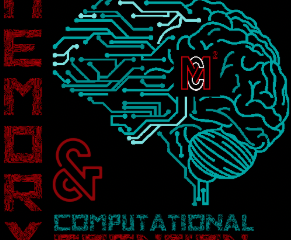Evaluative study for Office of Disability Services – Rutgers University, Newark
Background and Goals
The Office of Disability Services (ODS) needs evidence from research to identify opportunities to improve how they offer resources for students with physical, mental,and emotional disabilities, leading to improved accessibility for their office. Some key goals we have:
Evaluative research goals:
- Understand the prevailing disabilities among students that seek ODS services.
- Understand ease of accessing and using accommodation services amongst active students, including understanding of office processes and friendliness of office staff.
Method
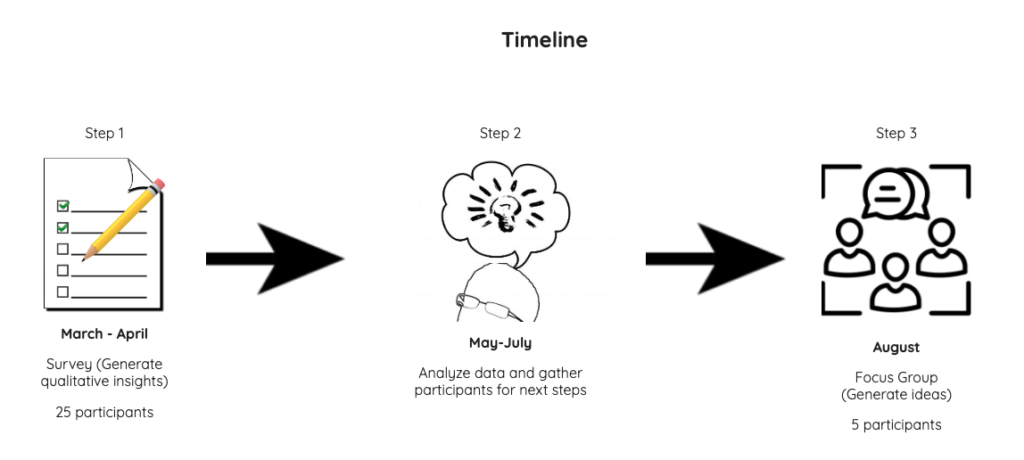
Step 1
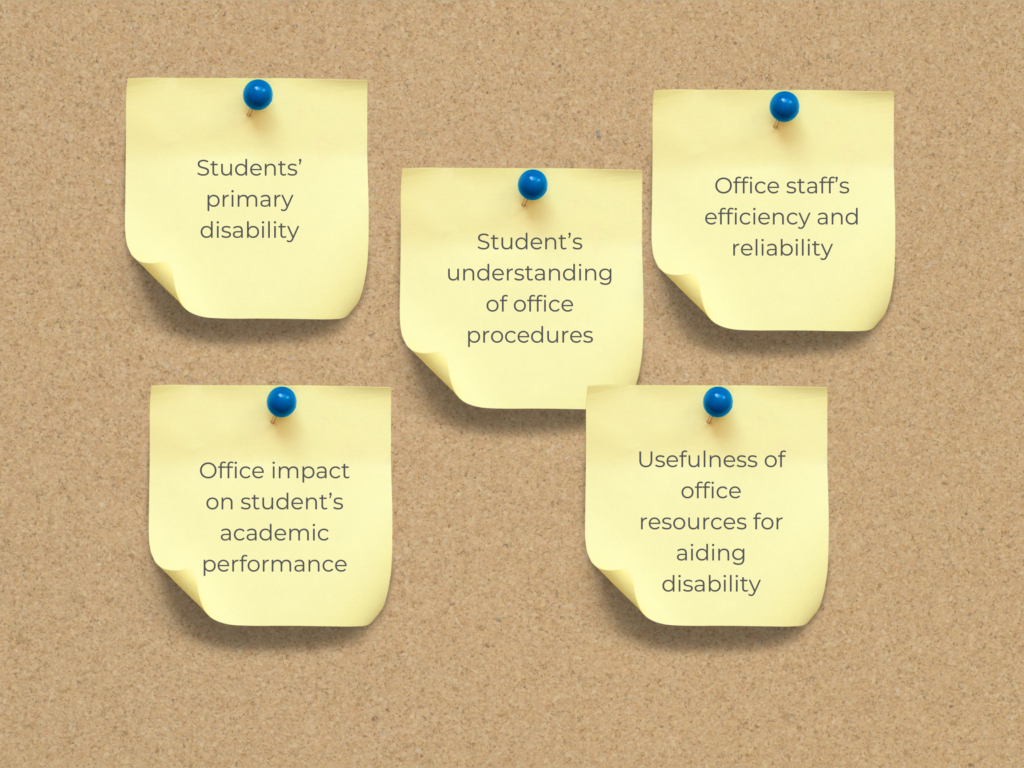
Brainstormed questions with the Office of Disability supervisor and staff to determine accessibility of our current disability resources within the office.
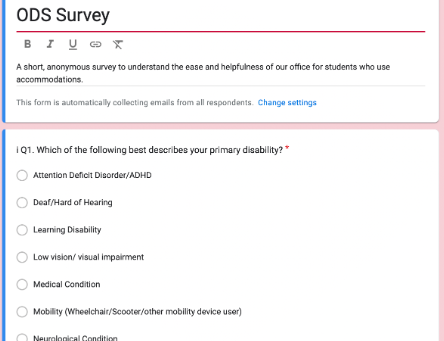
Created mixed methods survey, including quantitative and qualitative measures, to investigate the demographic population of ODS students and their experience with using ODS resources.
Step 2
After receiving the first round of feedback from 25 students, we discovered that a majority of our participant population experienced mental, rather than physical, disorders. Many of these students had a high understanding of the processes and personal responsibilities required by our office, and agreed that the staff had been helpful and clear in their instructions.
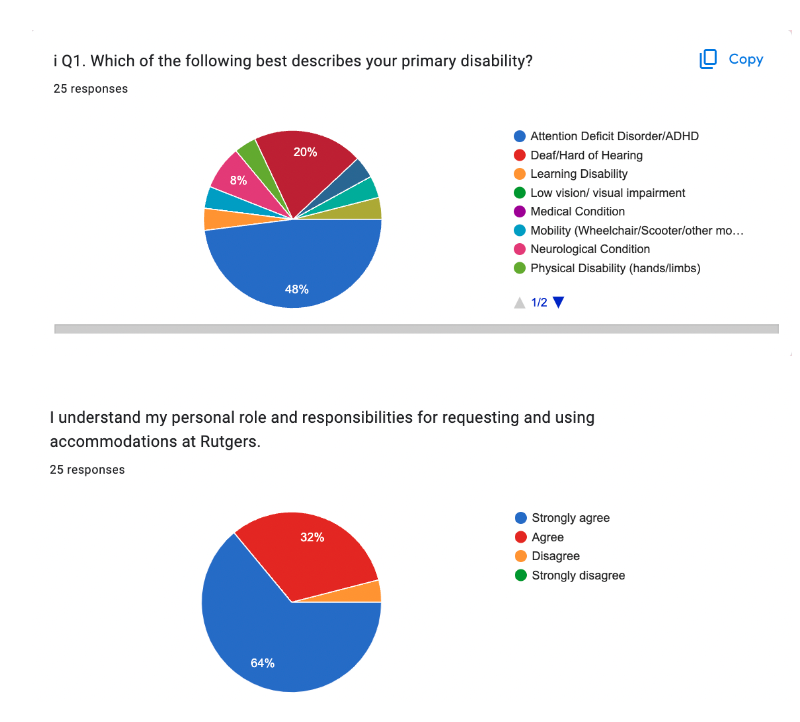
However, some students expressed issues about inconsistencies and confusions they had faced during their time at ODS.
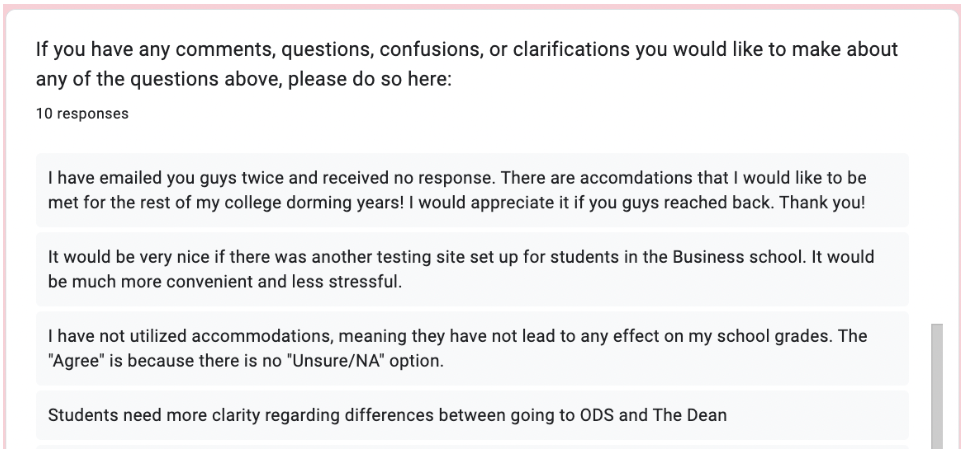
Step 3

To further probe these qualitative responses, I led a focus group on a select few subjects to generate more insight into what the office can do to increase accessibility and reduce these confusions.
We discovered:
- Students were well-informed of the ODS office and understood the steps they needed to take.
- Confusion arose in between registration and waiting for the coordinator intake meeting
- Delays in cross-functional communication with other offices led to delays in approving student documentation.
- Students prefer to receive email acknowledgement when submitting documentation to assure their place in the ODS process.
Research Impact
- Learned that the ODS office is communicative and clear in its process, and quicker in its email and phone response compared to other departments.
- Implemented automated email responses after receiving documentation to increase communication to students.
- Increased vigilance of newly registered students in emails to reduce month long waits for coordinator intake meeting.
My Learnings
- Starting strategic projects with actionable objectives.
- Group conversations provide nuanced feedback and allow for unbiased discussion. However, it takes time and practice to garner honest responses.
- Participant engagement is necessary on several levels (written and oral) to understand their experience with specific services.
